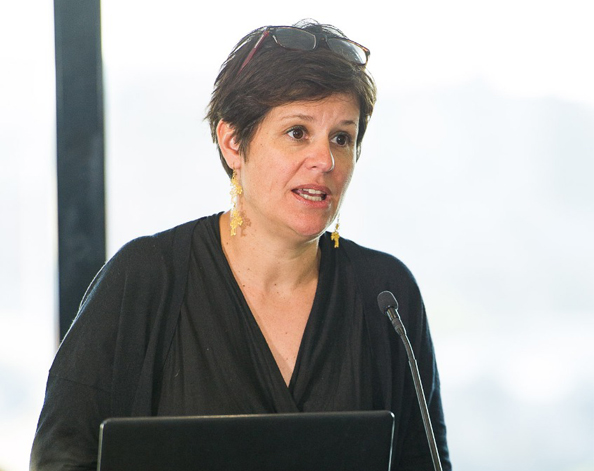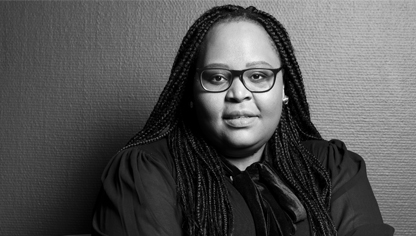Receive Focus insights straight to your inbox
South Africa’s economy is slowing down and thousands of jobs are being shed in different industries with the burden of unemployment concentrated amongst the youth (aged 15–34 years) who account for 63,4% of the total number of unemployed citizens. All this is against a backdrop of unfavourable international conditions including a global economic slump.
While the economy may be slowing down, a new wave of technology is sweeping through the country, changing the face of industries and reshaping workplaces. It is now more than ever imperative to invest in the future of South Africa’s human capital, starting with good quality education to future-proof our children.
With this in mind, the second instalment of Investec’s Tech4Good event series focused on “access to equitable and quality education” - the fourth Sustainability Development Goal (SDG) of the UN. Education is one of the six SDGs that Investec has chosen to prioritise.
Investec has a commitment to the SDGs. In an exploration to possible solutions, we are highlighting the complexity of the issues and curating a series of expert speakers who address the role technology can play in scaling solutions. In addition to this we are showcasing innovative business and funding models that help address the social and environmental challenges in new ways.
Ursula Hoadley, Associate Professor at the University of Cape Town School of Education, opened the latest Tech4Good event by outlining the critical problem areas in education, and shared her thoughts on how to improve the sector in South Africa. The Investec Focus team had the opportunity to interview her at the event.
In South Africa, there are two schooling systems running concurrently – the private school system that caters to 4% of children from wealthy families, and the public school system where 96% of children are receiving education where the quality is “significantly lagging”, says the International Monetary Fund (IMF) in a 2019 report.
“What you see is actually a perpetuation of the kinds of inequalities that we found under Apartheid now 24 years on into a post-Apartheid state society,” explains Hoadley. “When you look at the data, there's a clear distribution of outcomes which falls along the lines of the age-old distinctions of race, class and language.”
While this is a broader societal issue that needs to be resolved, there are specific interventions within the education system that can make a big difference to the quality of education children are receiving.

Teachers’ subject knowledge and language competence is generally very poor, and that is both in teaching of indigenous African languages as well as English.
The IMF report argues that “while South African teachers are well-compensated by international standards, they have lower subject content knowledge than their peers in Sub-Saharan African countries. Indeed, they are even sometimes outperformed by learners they are supposed to be teaching.”
The OECD Teaching and Learning International Survey (TALIS) 2018 reports that “during a typical lesson, teachers spend 66% of classroom time on actual teaching and learning.”
In addition to low content knowledge, many South African teachers have low rates of accountability and motivation, resulting in issues like absenteeism where up to 10% of teachers nationally are absent on any given day.
“We need to give teachers an opportunity to hone their skills and to sometimes learn from scratch,” says Hoadley. While she believes that the current curriculum is solid, “we need to build on that and help teachers so that they're able to interpret that curriculum in a meaningful way for students and support students through their learning”.
Early grade reading
A shocking statistic in South Africa is that 78% of our children can't read for meaning by the end of Grade 4 in any language, making it virtually impossible for them to meaningfully engage in learning. At the core of this, is the ability of teachers at the foundation phase to teach learners how to read.
Children who come from very literate homes are exposed to books and reading from a young age and find it a lot easier to learn to read when they get to school. “But children who encounter a book for the first time when they get to Grade R or Grade One need a very skilled teacher to teach them to read,” says Hoadley.
Hoadley explains that there are two critical sites of knowledge acquisition for children – their school and their home.
“For poorer kids, it’s often only the school [where they learn] and a whole site of acquisition is knocked out for them. So, we need to build that home environment to support parents to support their kids. Without that positive relationship, it's very difficult for children to persist in school and do well,” says Hoadley.

Technology is not a panacea for education
With an education system that’s battling to get basic infrastructure and competent teachers in place, the idea of bringing in the technology needed for South Africa to compete in the fourth industrial revolution seems like a distant dream.
But Hoadley doesn’t believe that technology necessarily holds the answer to our education woes. “There are plenty of schools in the developed world that do not have any tech in their classrooms because they've found that tech has led to a decline in student outcomes. So, it's a distraction rather than a learning aid.”
The fourth industrial revolution in fact enhances the need for kids to be able to think critically. “Children need to be able to read critically and they need to be able to distinguish between different kinds of information and how to negotiate that, and in order to develop those skills, you don't necessarily need tech.”
One area in which Hoadley believes technology can play an instrumental role in education is in the sphere of personalised learning. “There are very good pedagogic programs that tailor the learning to the individual. They can do a kind of individualised diagnosis of the problems that learners confront.”
But given the restrictions in terms of both connectivity and the cost of data in South Africa, “we are very far from being able to meaningfully implement tech in our schools,” says Hoadley.
“Tech is like a textbook. Unless it's mediated well by a competent teacher, it’s as good as anything else, so simply pouring money into tablets is completely unhelpful. In fact, possibly even regressive.”
While she believes there is no “silver bullet” to solve the education crisis, Hoadley hopes that multiple programmes tackling the key issues of teacher competence and reading will make a big difference.
“I think it's about really starting to focus on the poorer end properly with targeted interventions” that put in place the basics. “And some of those things are around infrastructure, some of them are around basic teacher knowledge, some of them are actually just about getting teachers to be in the classroom when they supposed to be in the classroom.”
More on Tech4Good
The latest Tech4Good event follows a workshop that brought together leading thinkers on emerging technology and innovative business models who are addressing the pressing social need for financial inclusion in South Africa.
Upcoming events will focus in on the six SDGs that Investec has chosen to prioritise from clean water and sanitation to affordable and clean energy and sustainable cities and communities.
In line with the company’s commitment to the SDGs, Fani Titi, Investec joint CEO, is one of only two South Africans to join a group of global leaders tasked with freeing up trillions of dollars from the private sector to finance the SDGs. The Global Investors for Sustainable Development Alliance seeks to find the funding needed to meet the UN’s 17 goals for sustainability by 2030.
About the author

Lenyaro Sello
Digital content specialist
Lenyaro is a key member of Investec's Global Content team, based in Johannesburg, who focuses on relevant and topical issues for internal and external audiences including clients. She is a well-travelled multi-skilled multimedia journalist who previously held roles within eNews Channel Africa (eNCA) and Eyewitness News (EWN).




